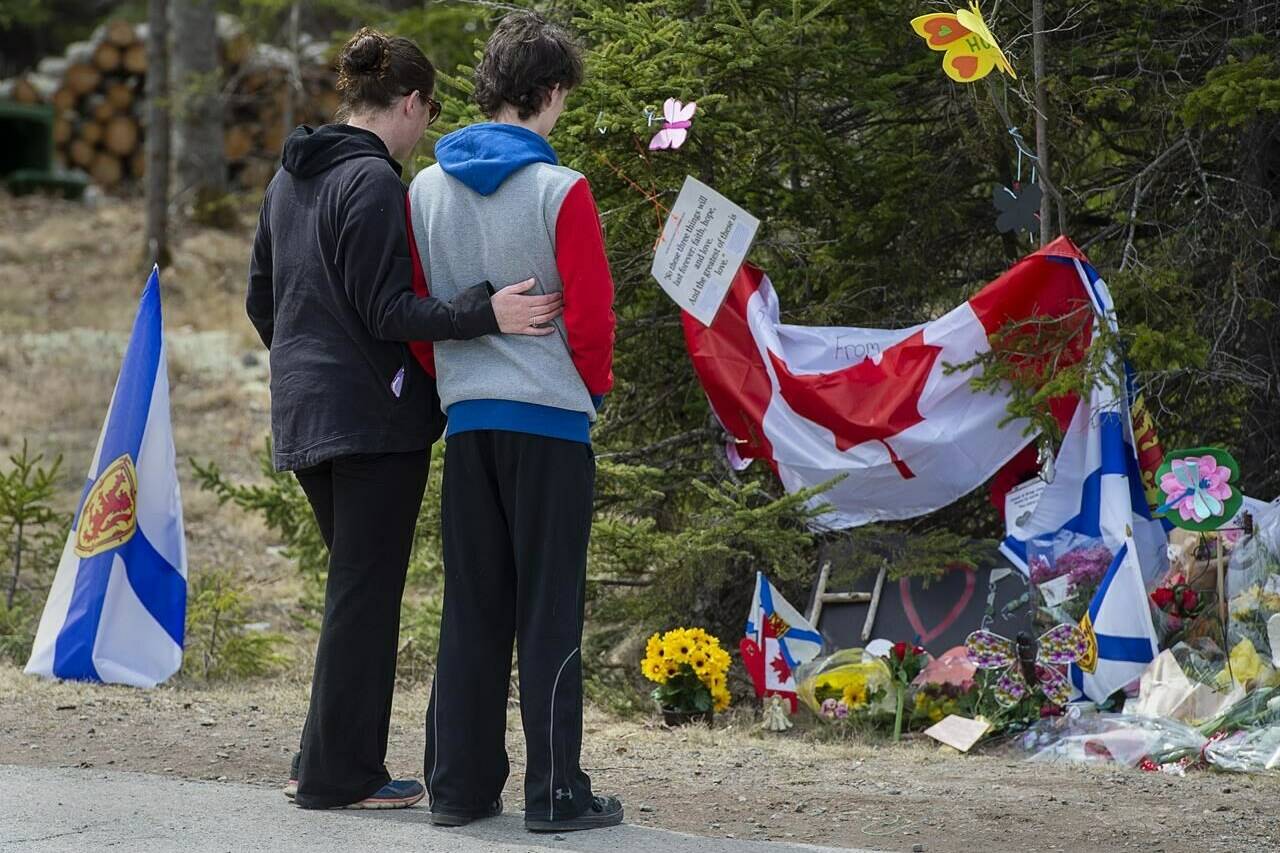A public inquiry into the worst mass shooting in modern Canadian history is set to begin hearings this week in Nova Scotia.
And as the proceedings open Tuesday in Halifax, the three presiding commissioners will be facing skeptical participants, lawyers and experts who have come forward in recent weeks to criticize the inquiry for being too secretive and unclear about how it will function.
“The public and those most affected by the (killings) have been looking for answers for nearly two years, but have been either kept in the dark or misled by the RCMP and governments,” said Nova Scotia lawyer Adam Rodgers, who has been offering analysis of the inquiry through an online blog.
“They fought hard for an inquiry that would provide those answers, yet so far that inquiry has only featured delays and secret meetings.”
For the past 15 months, the federal-provincial commission of inquiry has been conducting an independent investigation of the shooting rampage, which started on the night of April 18, 2020 when a lone gunman disguised as a Mountie killed 13 people and set fire to several homes and vehicles in rural Portapique, N.S.
The next day, the shooter, driving a replica RCMP cruiser, killed another nine people — including a pregnant woman and a Mountie. After leading police on a chase that spanned more than 100 kilometres, he was shot dead by police at a gas station north of Halifax.
The commission received its mandate from the federal and Nova Scotia cabinets in October 2020 after a series of public protests forced the two levels of government to order a fully independent inquiry rather than a less rigorous internal review.
Since then, the commission has pored over 40,000 pages of documents and interviewed more than 100 witnesses. Its investigation has led to the production of what it calls “foundational documents,” which will be used to guide the inquiry.
Spokespeople for the inquiry have stressed these documents were created with feedback from those most affected by the killings, including shooting survivors, victims’ relatives, first responders, RCMP officers and others touched by the tragedy. In all, there will be 61 recognized participants at the inquiry, including the two levels of government.
“The process is designed in a way that works with participants,” Emily Hill, the inquiry’s lead counsel, said in an interview last week. “Indeed, we have trusted them a great deal through this process, asking them for their feedback and inviting their contributions …. We’ve done that in an attempt to be as transparent and accountable to the public as we can.”
The hope is that these documents will help the inquiry process a huge volume of information without having to rely on witness testimony to account for every twist and turn. The commissioners have until Nov. 1 to complete their work.
But these key documents could prove problematic, said Ed Ratushy, a professor emeritus at the University of Ottawa and author of the 2009 book, “The Conduct of Public Inquiries.”
“Moving things along is one thing,” he said in a recent interview. “Doing the right thing is another.”
Ratushy said the foundational documents could place undue influence on the inquiry’s work. “Once they’ve written their own report, it’s going to be very difficult for them, if different information comes up, to change what they seem to be committed to being the facts,” he said.
That’s why the information should be tested during the hearings, which is what typically happens when witnesses face cross-examination by the participants’ lawyers, he said.
Last week, however, a Nova Scotia law firm representing 23 participating families and individuals said it was unclear who will be called as witnesses, how they will be asked to give evidence and whether lawyers would be allowed to question them or test the evidence in the foundational documents.
“Our clients continue to watch for signs that the public inquiry will proceed as it should, but feel greatly disappointed … there is no assurance that it will be anything other than the review that our clients marched to oppose in the summer of 2020,” said a statement issued by Patterson Law, based in Truro, N.S.
Asked if the inquiry could be facing a loss of public trust, the inquiry’s investigations director, Barbara McLean, said she could only speak about the work of the commission.
“A lot of it is going to made public next week,” she said in an interview. “I think once they start to see what we have, I think there will be a more informed opinion of the work that we’ve done. And if there are any gaps, I invite people to come forward and help us with our work.”
On another front, critics have noted the inquiry rules state that lawyers for the participants will not be allowed to cross-examine witnesses unless the three commissioners grant approval.
Ratushy said that’s not what usually happens at public inquiries, but he also noted that such bodies do have a great deal of flexibility when it comes to interpreting their mandate.
“I’ve never seen it done the way they are doing it,” he said. “It is essentially an experiment to see whether this way of conducting this kind of so-called inquiry will work.”
Rodgers, who has been involved in a high-profile fatality inquiry in Nova Scotia for the past two years, said this inquiry appears to have unusual — and possibly innovative — features.
“But they will need to build credibility for those features through their actions over the coming weeks,” he said. “In time, they may be lauded for their approach, but they cannot presume that it will be seen as legitimate until the public sees how it will work.”
READ MORE: RCMP under scrutiny one year after mass killing that left 22 dead in Nova Scotia
Michael MacDonald, The Canadian Press

